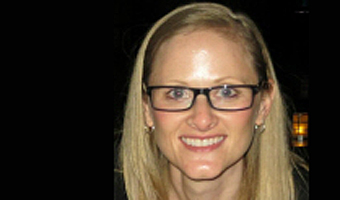The Wealth & Poverty theme at Ohio University presents Dr. Elizabeth Beverly discussing Comprehensive Patient Navigator Program for Rural Appalachia on Wednesday, Feb. 8, from 2-3 p.m. at Alden 319.
This event is part of Wealth & Poverty Week: Rural America.
Abstract

Dr. Elizabeth Beverly
Diabetes rates in rural Appalachian Southeastern Ohio are 30-40 percent higher than the national average. Diabetes patients living in Southeastern Ohio are more likely to have a delayed diagnosis, less access to health care, socioeconomic barriers, lower empowerment and health literacy, and more diabetes complications. This presentation will discuss a novel program designed to address the social determinants of health for adults with type 2 diabetes in a rural Appalachian Southeastern Ohio. The Comprehensive Patient Navigation Program for Rural Appalachia is designed to reduce barriers to health care (e.g., transportation, housing, expanded insurance coverage), improve health outcomes (e.g., glycemic and blood pressure control; reduced depression, distress), and lower health care expenditures (e.g., reduced admissions, readmissions, and emergency department utilization) for individuals with type 2 diabetes through the development and coordinated implementation of three programs: (1) a Diabetes Patient Navigator Program, (2) a Medical Legal Partnership Program, and (3) a Consumer-Engaged Coalition.
Speaker Bio
Beverly is Assistant Professor in the Department of Family Medicine at the Ohio University Heritage College of Osteopathic Medicine. She graduated from The Pennsylvania State University with a Bachelor of Science degree in 2003 and with a Doctor of Philosophy degree in Biology and Behavioral Health with a minor in Gerontology in 2008. She recently completed a five-year postdoctoral fellowship in diabetes at Harvard Medical School with the Joslin Diabetes Center. Beverly’s research in diabetes and behavioral medicine examines the behavioral and psychosocial challenges that arise from following diabetes self-care recommendations and treatment prescriptions. She regularly participates in research integrating quantitative and qualitative techniques to better understand the management of type 1 and 2 diabetes. Specifically, her research addresses individual patient characteristics and abilities necessary to 1) follow treatment recommendations, 2) improve self-care, and 3) maintain improvements in diabetes self-care and glycemic control.
More Rural America Events
 Appalachia’s New Rural Economy: Industry, Employment, and Economic Well-Being
Appalachia’s New Rural Economy: Industry, Employment, and Economic Well-Being
- Friday, Feb. 3 – Dr. Cynthia Anderson (Sociology and Anthropology) 1-2 p.m. at Alden 319
Rising Tides and Leaky Boats: Economic Development Strategies That Work for Those That Need Help Most
- Monday, Feb. 6 – John Molinaro (Appalachian Partnership for Economic Growth) 3-4 p.m. at Alden 319
A Home on the Range and a Range in the Home: Farm Women’s Acquisition of Modern Household Technology
- Tuesday, Feb. 7 – Dr. Katherine Jellison (History) 9-10 a.m. at Alden 319
Growing Old in Rural Appalachia: Looking Back and Thinking Forward
- Thursday, Feb. 9 – Dr. Graham Rowles (Gerontology, University of Kentucky) 3-4 p.m. at Alden 319
The Little Cities as a Classroom
- Friday, Feb. 10 – Dr. Rachel Terman (Sociology and Anthropology) and John Winnenberg (Sunday Creek Associates) 1-2 p.m. at Alden 319


















Comments